Syrian army 'failed to resist', says Iranian FM
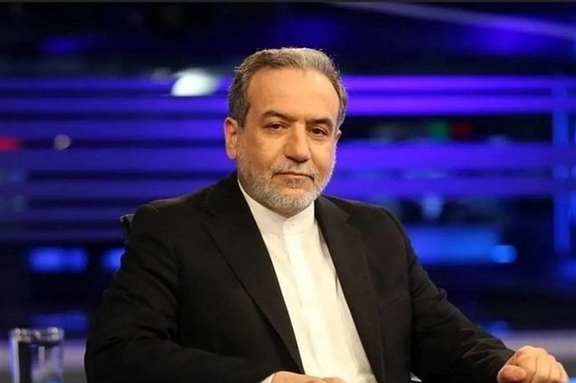
Iranian Foreign Minister Abbas Araghchi spoke of Iran's surprise at the sudden fall of the Syrian government in the face of insurgents during a televised interview on Sunday night.

Iranian Foreign Minister Abbas Araghchi spoke of Iran's surprise at the sudden fall of the Syrian government in the face of insurgents during a televised interview on Sunday night.
"The rapid withdrawal of the army was unexpected. All information had been shared in advance. The Syrian army failed to resist, which was largely psychological—no one believed it would happen," he said.
Araghchi said that joint Iranian intelligence had thoroughly assessed the situation, Iran sharing warnings about opposition movements in Idlib with the Syrian government. However, he stopped short of explaining why Iranian forces, a key Assad ally, did not intervene to counter the rapid developments.
“What was surprising was, first, the Syrian army's inability to confront the situation, and second, the rapid pace of developments,” he added.
Araghchi said that while Tehran had a role in the 2017 Astana process - an initiative to build dialogue with opposition groups co-chaired with Russia and Turkey - direct military intervention was not part of Iran’s responsibilities in spite of the country having helped prop up the Assad government for over a decade.
The foreign minister acknowledged Assad’s own shock, saying, “Even Bashar al-Assad himself was surprised by the performance of his army. It was evident there was no accurate analysis within Syria.”
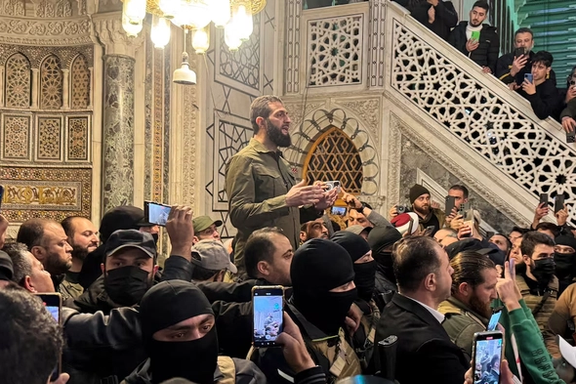
Araghchi also addressed Iran's frustration with recent developments undermining the Astana agreements. “One of the objectives of Astana was to help the government and opposition engage in dialogue. While we made slow progress in this direction, it did not proceed well because Assad’s government showed little flexibility,” he said, in a rare criticism of the decades-long president.
On Saturday, Araghchi participated in the Astana Meeting in Doha, where he met with the Emir of Qatar and other Arab officials.
For now, the situation remains unclear as to Iran's future role in the country, Iran's Supreme Leader set to address the issue in a speech on Wednesday. Ahmad Naderi, a member of the Iranian parliament, said: “Iran's future approach towards Syria depends on the behavior of those who have taken power in the country.”
European Union foreign policy chief Kaja Kallas called the rapid fall of the Syrian government a sign of the weakening of both Moscow and Tehran, while US Secretary of State Antony Blinken linked the collapse to Assad’s refusal to engage politically.
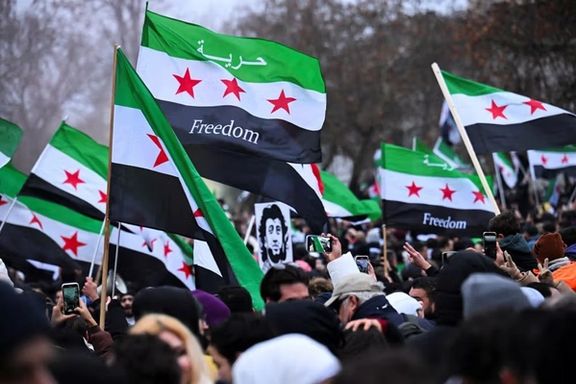
With the fall of the Assad government threatening Iran's key strategic foothold in the Levant, Tehran signals an interest in forging ties with Syria's new power holders, according to an Iranian official.
Long-time President Bashar al Assad fled the country at the weekend, leaving a vacuum in the country after both Iran and Russia had since 2011’s civil war, supported.
Reuters reported that talks had begun in an attempt to "prevent a hostile trajectory" between the countries after a rapid takeover saw the 50-year Assad family rule collapse in days.
The senior official told Reuters that Iran's clerical rulers, facing the loss of an important ally in Damascus and the return of Donald Trump to the white House in January, were open to engaging with Syria's new leaders.
Iran had multiple military bases across Syria, having controlled airports and sea ports which have been a key smuggling route to Iran’s military allies in the region, including its largest, Hezbollah in Lebanon. It is not clear if there is an Iranian presence left in Assad's traditional bastion, the Alawite coastal regions.
Syria was also a location for Iran’s oil sales amid global sanctions, allowing the Islamic Republic to circumvent the crippling economic grip imposed by the US and other nations.
"This engagement is key to stabilize ties and avoiding further regional tensions," the official said.
The fall of the Assad government came after the unification of multiple Sunni militia forces, led by Hay'at Tahrir al Sham, a former al Qaeda ally.
However, it is led by Muhammad al Jolani who, though a Sunni, is known to share Iran's hatred of Israel. His grandfather was displaced to Syria from the now Israeli occupied Golan Heights in 1967.
In a rare Western media interview in 2021 with PBS Frontline, he said he was radicalized by the second intifada in 2000, one of the bloodiest periods in the Palestine-Israel conflict.
Just like Iran's backing of Gaza-based Hamas, the alliance would not be the first time Iran had aligned with Sunni militants in a bid to erase its archenemy, Israel.
“I was 17 or 18 years old at the time, and I started thinking about how I could fulfil my duties, defending a people who are oppressed by occupiers and invaders,” he said at the time.
It is not only Iran which is worried about the new transition, in spite of the global relief of the fall of a man known as a brutal dictator, and whose rule saw the deaths of at least 300,000 civilians, including hundreds in a chemical weapons attack in 2013.
The US carried out dozens of targeted airstrikes on ISIS members and facilities as fears of a resurgence of extremism remained a priority.
“There should be no doubt – we will not allow ISIS to reconstitute and take advantage of the current situation in Syria,” CENTCOM Commander General Michael Erik Kurilla said in a statement.
“All organizations in Syria should know that we will hold them accountable if they partner with or support ISIS in any way.”
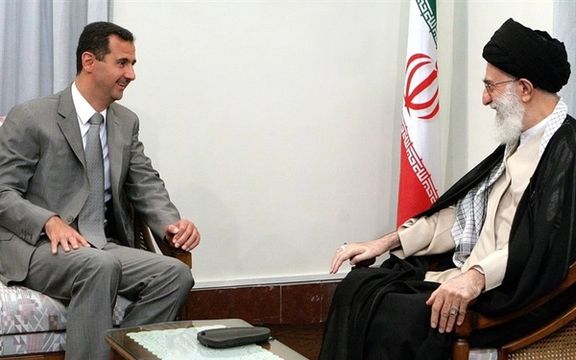
In the aftermath of Bashar al-Assad's ouster in Syria, some Iranian politicians and commentators have pointed to his unpopularity and criticized the Islamic Republic for what they describe as the extensive resources wasted on keeping him in power.
Some of the more outspoken views about Assad, which could be seen as indirect criticism of Iran's Supreme Leader Ali Khamenei's policies, were conspicuously deleted after a few hours, possibly under pressure from authorities.
Khamenei has consistently praised Bashar al-Assad as a pivotal figure in the "Axis of Resistance" and has insisted on unwavering support for him against his opponents.
Conservative commentator Mohammad Mohajeri, tweeted Sunday, “In the last election, Bashar al-Assad had won 95 percent of the vote, but three years after that election, he fell from power without a single person from among ordinary people being willing to defend him." He later removed his post without an explanation.
Prominent commentator Sadegh Zibakalam, often labeled a reformist, reiterated his recent criticism of the Islamic Republic’s costly support for Bashar al-Assad in two tweets on Sunday.
Zibakalam, who has frequently condemned Iran's spending on arming and supporting groups like the Houthis and Hezbollah, as well as countries such as Venezuela, had also criticized the financial backing for Assad in a November 2023 interview.
In one of his tweets, Zibakalam who has also been very critical of Iran's costly nuclear program, said the Islamic Republic dedicated every possible assistance including the lives of its men to keep Assad in power but “never asked even once how this resistance leader treated his people.”
“Assad’s end was fortunate both for the Syrian people and Iranians. The people of Syria were saved from the suppressive rule of Baathists after half a century. The gain for the Iranians is that wastage of their country’s resources and throwing that into the bottomless well called Axis of Resistance to save a despotic and unpopular ruler ended,” he said in another post.
Zibakalam, who was imprisoned in May and later released for medical treatment, deleted his tweets after a few hours and made no further comments on Assad’s fall.
Parvaneh Salahshouri, a former reformist lawmaker and outspoken critic of the Islamic Republic’s policies, referred to Bashar al-Assad as a dictator in a brief post on X. “Assad’s destiny, the disgraceful fate of all dictators,” she wrote.
“The fate of over half a century of the Assad family dictatorship in Syria … must be a lesson for all authoritarian governments,” the former secretary general of the banned Freedom Movement of Iran Party, Mohammad Tavassoli, warned in an X post, adding that timely “return to the people” and giving them freedom and the power to exercise their wishes can “prevent such a costly process” as overthrowing the Assad family.
A similar view was expressed by Rahmatollah Bigdelli, a pro-Pezeshkian cleric and politician, who also in an X post said Assad’s fall should be a lesson for a government to surrender to the will of its people to stay immune to “internal and external threats”.
Assad’s reported $30 billion debt to Iran
In addition to deploying tens of thousands of fighters to support Bashar al-Assad’s forces against insurgents across Syria, the Islamic Republic provided his government with free oil and military equipment for years.
Iran's substantial support for Assad has contributed to sanctions being imposed on its prominent airline, Mahan Air, as well as the country's national carrier, Iran Air.
In May 2020, Heshmatollah Falahatpisheh, then-chairman of the parliamentary National Security Council and Foreign Policy Committee, said Iran had spent between $20 to $30 billion to support Assad and demanded that the debt be paid back.
“Syria … Iranians must rejoice now. Nobody has the right to spend the nation’s dollars to preserve the spider’s web,” Falahatpisheh tweeted Sunday.
Falahatpishes, too, removed his tweet Monday and in another tweet said he still considers the Assad family a "spider's web". "That's why I spent a decade of my life to recover Syria's debts to Iran," he wrote, but added that he distinguishes between the Assad family and the "true and rightful resistance movement."
Many of those who commented on his tweet accused him of cowardice for backing from his original position under pressure. "Look out of the window, the black van [of the security forces] has left the alleyway. It is too obvious that they called you to direct you to the right path,” one of the comments said.
Similar concerns were voiced by Bahram Parsaei, a member of parliament until 2020, who also claimed the Assad government owed $30 billion to Iran. “What will happen to this huge sum of money now?” he asked in an X post. He pointed out that according to Article 80 of the Iranian Constitution, any non-refundable foreign loans should have been approved by the Parliament.
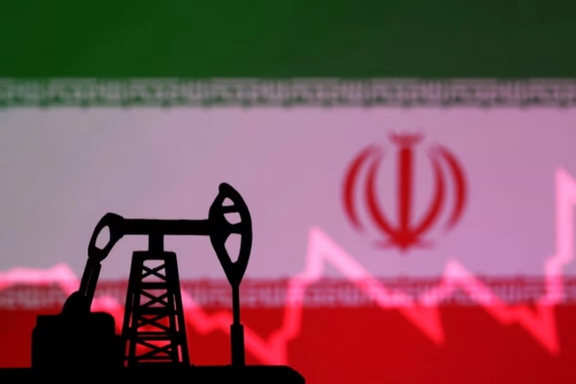
In the wake of the collapse of Bashar al-Assad’s government in Syria, an Iranian tanker carrying oil to Syria has reversed its course in the Red Sea apparently headed back toward the Persian Gulf.
Initially set to deliver approximately 750,000 barrels of Iranian crude to Syria, the Suezmax tanker LOTUS (IMO 9203784) is now returning to Iran, as reported by Tanker Trackers.
Iran has been providing Assad's government with free oil, as well as financial and military assistance throughout the country's civil war. According to Iranian politicians, the Assad government owed Iran between $30-50 billion.
This follows anticipated fuel shortages in Syria, likely to worsen with the fall of Iran's allied government and the takeover by insurgent groups, who stormed the Iranian embassy in Damascus on Sunday.
According to data received by Iran International from Kepler, a leading provider of technology-led insights into energy and shipping markets, Iran has been sending between 60,000 and 70,000 barrels of oil to Syria daily.
Anti-Assad rebels view Iran as a supporter of a regime that suppressed protests and targeted opponents with all available military means during the 13-year civil war. Assad's fall and the withdrawal of Iranian forces would disrupt Tehran's ability to use Syria as a strategic transit route for transferring weapons to the Lebanese Hezbollah and as a military base.
Syria served as a critical corridor for the Islamic Republic, linking Tehran to the Mediterranean in what was often referred to as Tehran's "Shiite Crescent." With Assad's fall, Iran's regional influence is expected to weaken further, particularly following significant Israeli blows against Hezbollah.
“This will probably embolden the Trump Administration to take a tough stance against Iran, in particular by constraining their oil exports. Inflicting economic pain on the regime would seem more likely to yield results now that the Iranians have seen their investment in Syria prove wasted,” wrote Forbes on Sunday.
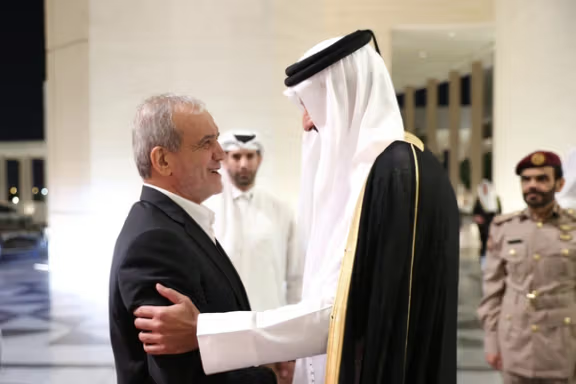
The relationship between Qatar and the Islamic Republic of Iran is one driven by mutual interests over ideological alignment, helping both to fulfil regional and international objectives.
Qatar is a Sunni-led monarchy, while the Islamic Republic of Iran is a Shiite theocracy. This marked difference, however, has not undermined their relationship. Why? Because it serves both sides immensely.
For Qatar, this partnership balances its extensive Western ties with a regional power that opposes the United States. For Iran, it provides a diplomatic boost in international forums, helping circumvent its growing isolation.
In recent discussions, Iranian and Qatari officials emphasized expanding trade and economic cooperation. They outlined plans to facilitate business connections and improve infrastructure for bilateral projects. Notable examples include the initiative to construct the world’s longest undersea tunnel connecting the two countries and a joint currency exchange entity designed to bypass international sanctions and streamline financial transactions.
Amid rising tensions between Israel and Iran, Qatar has aligned itself closer to Tehran. This was evident during Iranian President Masoud Pezeshkian’s visit to Doha in October 2024. The two countries discussed enhancing cooperation in economy, energy, culture, and education, with a particular focus on resolving the $6 billion in Iranian assets frozen in Qatar.
The visit underscored Qatar’s role as a diplomatic mediator, as Pezeshkian met with regional leaders, including Hamas representatives, to address crises in Gaza and Lebanon. Such diplomatic collaborations draw much attention—and understandably so. But it often comes at the cost of closer look at realities that help explain the dynamics of this alliance.
The Reality in Iran
Under the leadership of Supreme Leader Ayatollah Ali Khamenei, Iran enforces Sharia law with a totalitarian grip. The regime systematically represses dissent through tactics like torture, extrajudicial killings, and harsh prison sentences targeting political dissidents, ethnic minorities, and women’s rights advocates.
The death of Mahsa Amini in 2022 ignited protests demanding gender equality and basic freedoms. In response, the regime imprisoned thousands, killed hundreds, and executed many in sham trials, showcasing its intolerance. Iran also targets dissidents abroad through abductions and assassinations, disregarding international norms.
Beyond its borders, Iran funds violence and instability across the Middle East through proxies like Hezbollah. These actions are often justified under the guise of “humanitarian support” but serve to advance Iran’s ideological and political agenda.
The Reality in Qatar
Qatar’s election to the UN Human Rights Council for 2025-2027 highlights a dissonance between its global image and its domestic record. Human Rights Watch has reported arbitrary arrests and abuse of LGBT individuals, along with discriminatory laws against women.
Labor law reforms, while significant, face concerns about enforcement, particularly after Qatar reinstated exit permits for domestic workers, increasing their vulnerability to exploitation.
Qatar's longstanding decision to host Hamas came under more scrutiny after October 7. It's a relationship that may be better described as seeking leverage---and not a humanitarian gesture, as Doha prefers to depict it.
A Masked Agenda
Though Qatar and the Islamic Republic of Iran present their partnership as a means to promote regional stability, their alliance is rooted in political and strategic interests.
The cooperation between Tehran and Doha is often framed in idealistic terms but conceals a deeper agenda focused on power, influence, and suppression.
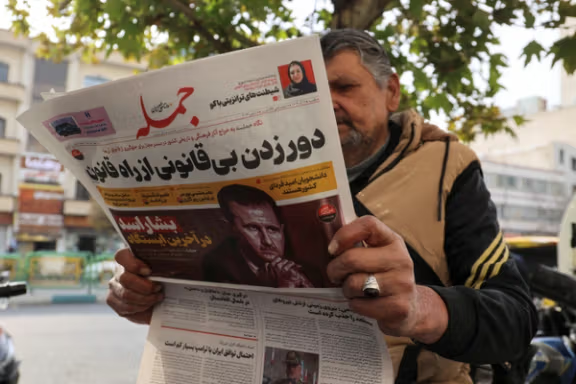
The fall of Syrian President Bashar al-Assad has deprived the Islamic Republic of a key partner, weakening its influence abroad and tearing away a fear barrier which could inspire Iranians to rise against their own rulers.
Iran’s outpost in Syria has collapsed, Chris Doyle, director of the Council for Arab-British Understanding told Iran International, upending Iran's military strategy abroad so thoroughly that it may inspire opponents at home to oust the 45-year-old Islamic Republic.
“The Iranians have taken a huge hit here,” he told Iran International. “It’s certainly ripped up that important [smuggling] corridor it relied on, from Iran to the Mediterranean. Syria now will be a country not in Iran’s control. Iran will lose a lot of assets they’ve invested in, properties they took over won’t remain Iranian.”
He said that as a result of the rapid fall of Syria in less than a week, after being in the hands of the Assad family for five decades, it could also bode well for a full overthrow of the government in Iran, which has been growing ever weaker since the uprising of 2022.
“It will be inspiring many people across the region to see what Syria has done and that will be unnerving for the Iranian regime,” not least, with the weakening of Iran-backed allies Hezbollah in Lebanon and Hamas in Gaza, leaving Iran’s archenemy Israel now in a much stronger position.
“The borders of Syria are certainly not in the hands of the Assad regime now," he dais and highlighted that Kurds control the borders with Iraq. "If Iran wanted to smuggle weapons and fighters into Syria, the Iraqi border is very important. Iran will be reassessing its strategies here and with a Trump administration coming, who knows. It faces some stark choices."
Arash Azizi, a visiting fellow at Boston University’s Pardee Center for the Study of the Longer-Range Future, said he agrees.
"The fall of Assad is the most important blow the Iranian regime has suffered in years," he told Iran International. "It signals the collapse of its 'Axis of Resistance' [military allies across the region] which has been the mainstay of Khamenei’s policy during most of his decades-long term as Supreme Leader," he added.
Iran has for decades supported groups in countries including Yemen, Palestine, Lebanon and Syria.
"Khamenei already had problems saving face given the massive blows the Axis received in the last year but this leaves him further humiliated and isolated," he said, referring to the blows dealt to Iran's largest proxy Hezbollah in Lebanon, and Hamas in Gaza.
After the Hamas invasion of October 7 last year, Israel has been engaged in its longest ever conflict with the Iran-backed group, while Hezbollah on Israel's northern border attacked on a second front, with others from Yemen, Iraq, Syria and the West Bank.
Israel has killed huge swathes of Hezbollah's leadership, including long-time leader Hassan Nasrallah, and according to the Israeli military, taken it back decades. In Gaza, Hamas has also been dealt a huge blow, with the majority of its battalions and infrastructure across the strip destroyed.
Internally, it will also hurt Tehran, said Azizi, in addition to the risks it now faces from the incoming Trump presidency, who has vowed a "maximum pressure" approach to Iran and its allies.
"The fall of Assad shows the weakness of the Iranian regime and will be definitely a boost for the regime’s opponents. It will inspire them to take it on especially as the regime is hemmed in from other sides too: the return of Trump to White House will likely bring renewed pressure on it and Israel is also strengthened," he explained.
"But it will also have effects on the regime’s internal composition. Those factions who seek a deal with the West and want Iran to step back from some of its aggressive policies will see a boost. They will try to get a deal with Trump at any price that might get them some respite."
However, Azizi argued the opposition to the Islamic Republic must become better organized to capitalize on the changing landscape for the impact to be truly felt at home.
"The Iranian opposition could have used this as an excellent opportunity to act against the regime but it’s extremely disorganized and thus not able to," he said. "Its hope will rest on spontaneous movements from the Iranian people — which can never be predicted but is always possible."
Ehud Yaari, an Israeli Lafer International Fellow at The Washington Institute, wrote on Sunday that while concerns persist about weapons such as chemical arms, long-range rockets, and surface-to-surface missiles falling into extremist hands, it is “time to celebrate” the downfall of the Assad dynasty, which ruled for over 50 years.
He said the need to reinforce the Druze communities on Israel's northern border is vital, and that is now recognized by the Israeli government.
“The concerns about chemical weapons and heavy missiles falling into the hands of the rebels are certainly justified, but let us remember that there is a huge distance between seizing chemical materials and the ability and, of course, the desire to use them,” he wrote in his column for Channel 12.
“The rebel leaders already announced this morning that they are ready to help international organizations dismantle the chemical weapons that Assad has accumulated and announced that in any case they have no intention of using them."